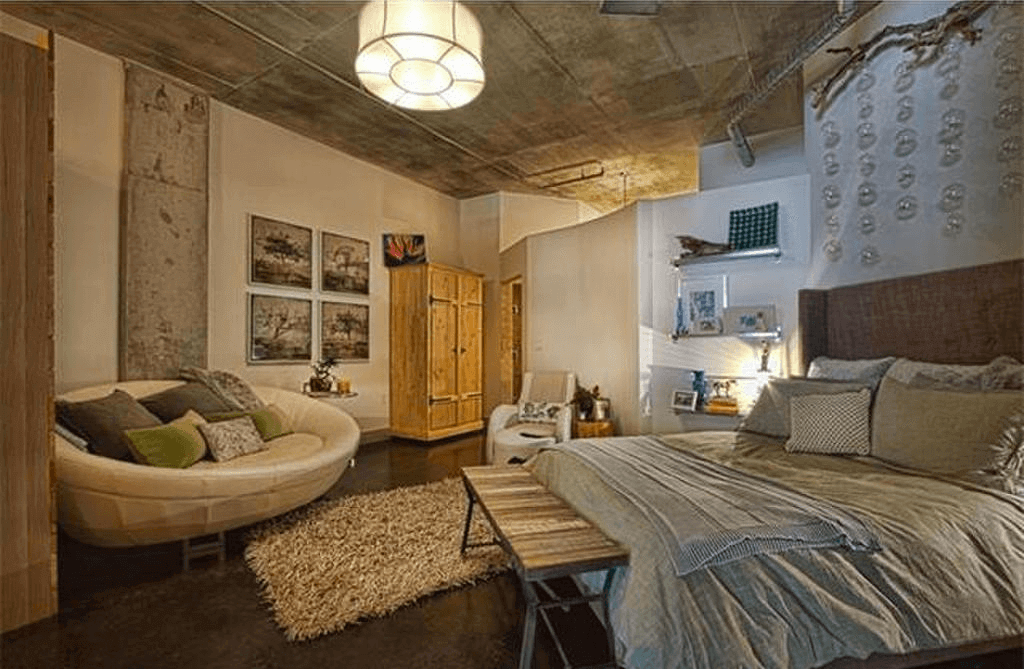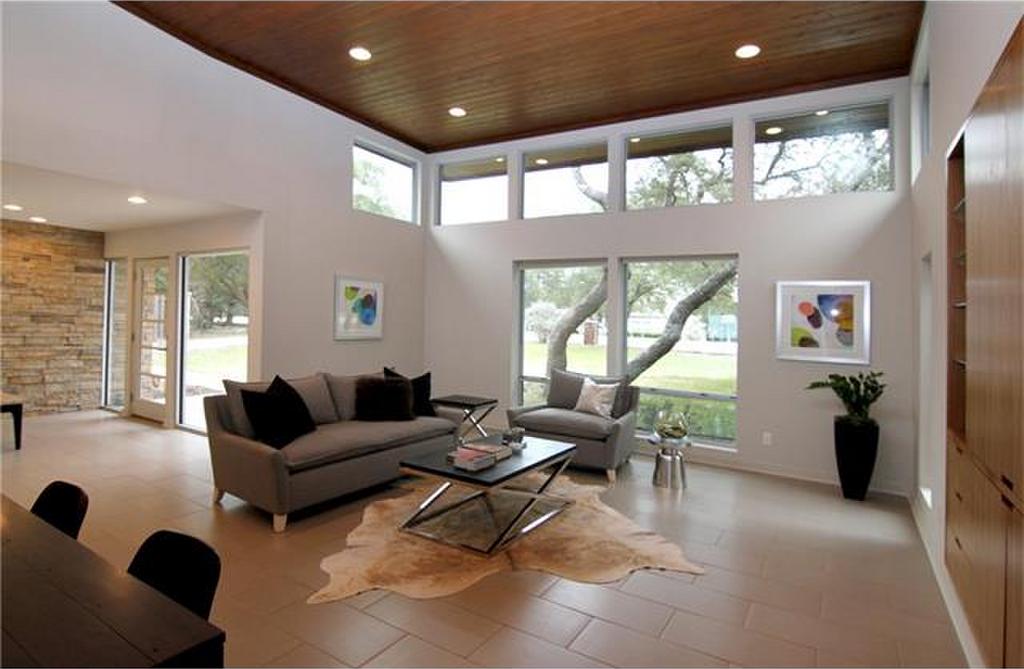The Complete Guide to Renting Your First Austin House or Apartment
Posted by Brad Pauly on Tuesday, March 23rd, 2021 at 10:12am.

Finding your first home in Austin can be a liberating, but sometimes frustrating experience. We know both the highs and the lows of renting, so we created this guide so you can get a better understanding of what to look for when searching for your first place.
Rental Property Types
While you may already know what type of property you're looking for, it's good to know the pros and cons for each property type.

Apartments
Apartments provide renters with the convenience of community living by providing many amenities for all residents, such as gated entrances, community gyms, pools, and dog parks. Most larger apartment complexes have dedicated maintenance staff to assist with any living needs or requests. Apartments also provide better locations with more options in Austin compared to similarly priced houses. Apartments, however, come with sharing walls with neighbors, which means being more mindful of noise. It's not uncommon to have neighbors sharing almost every wall of your apartment with you. If the property isn't well soundproofed, it can be a rough adjustment.

Houses
Houses provide tenants with more privacy, more space, and a little more freedom. Yards can provide outside areas for relaxation and a place for your dog to wander and roam. However, houses are typically further away from work and social areas and also lack some of the amenities of apartments. Larger spaces often incur higher electric bills and may be too much for renters seeking space for only one occupant. If you're still not sure what's better for your needs, it's best to discuss your specific wants with a leasing agent, who can help find a place to live that's right for you.
First questions to ask
How close are you to work?
Traffic in Austin is getting worse daily, and commuting can be awful if you don't live close to your work. When looking at properties, check how close it is to your work along with estimated morning commute times.
How many people are you living with?
Knowing how many bedrooms you’ll need is a great place to start when gathering ideas for locations and types of properties to look at. Having roommates can help save money by splitting costs of bills, but comes at the loss of some privacy. Having too many (4+) roommates, on the other hand, can limit your options in location to houses and college-style apartments.
How much storage space do you need?
This might seem like a no-brainer, but since houses are larger, they have more space for storage, furniture, and appliances. If you find that your current place of living is becoming cramped, then it might be time to make the move to something larger. Often, this can mean moving from an apartment to a house. But, if you’re comfortable with your current living situation and are not concerned with allotted space, then renting an apartment is a viable option.
How often do you need to move?
If your job requires you to move from state to state, or you find yourself longing for a change of scenery often, then it might be best to rent an apartment. Less space means fewer belongings, and less time packing up said belongings when it’s time to move. If you're still starting out on your career, or are unsure if you’ll want to move anytime soon, then consider renting an apartment at this stage of your life.
How much can I afford?
When looking at the price of rent, the gross income of all occupants of the residence should make three times more per month than the cost of rent. For example: if your rent costs $1,400 per month, the gross monthly earnings of everyone in the residence should be 4,200 per month, or around 50K annually. If you and/or your roommates combined do not earn that much money, you could still get the place, but may need a cosigner or financial guarantor. Where you stand financially should give you a better estimate of where you can live, and if you need to live with roommates. In addition to the price of rent itself, there are other monthly payments to consider when deciding how much you can afford including:
- Electric
- Water
- Gas
- Internet
- Monthly pet fees
- Waste
- Parking
- TV, Netflix, etc...
- Renter's insurance
Finding the right location
If you're not familiar with Austin, or if you're just trying to narrow down exactly where you want to stay, you might have some questions about where to move to. You can browse overviews of each neighborhood in the city, or check out spotlights of various neighborhoods, including:
Things to look for when touring properties
When you see a property online, the pictures might deceive you with new cabinets, fresh paint, and new lighting. While the style of a property provides the initial draw and warmth of a residence, there are other factors to consider that can help significantly increase happiness six months into your lease and later.
Air conditioning
Today’s air conditioners can save 20-40% on energy costs to produce the same amount of cooling as air conditioners from ten years ago. With the heat in Austin, cooling your place will likely comprise the largest part of your electric bill, so make sure to ask how new the air conditioning unit is, and if they have any typical monthly electric estimates.
Flooring
Rental properties typically have laminate, tile, stained concrete, wood, or carpet flooring. Stained concrete and laminate floors are the most durable and require the least amount of maintenance. Tile is also durable and helps with cooling an area, but can chip or crack with age. Wood floors, while beautiful, require not only routine maintenance but also can be scratched very easily. Carpets need regular upkeep, and can be difficult to clean to a like-new condition after normal wear and tear.
Windows
Newer windows, coupled with screens, can help provide good ventilation in cooler months for natural air to circulate through the home or apartment. When touring a property, make sure to check which windows can be opened, and the general age and condition of the windows. Windows that are hard to open can be caused by structural damage.
Insulation
The type of insulation in a property can indicate how much heat a building will retain, and also how much noise will permeate from wall to wall.
Appliances
Good appliances go a long way when you're in the kitchen. Newer refrigerators and ranges are not only more energy efficient but can also provide a less frustrating cooking experience.
Ceilings
Love that high vaulted ceiling that makes an apartment feel larger? Expect to pay for that "extra space" with drastically increased costs for cooling your cool new place down. Hot air rises and vaulted ceilings are HUGE energy wasters. Stay cooler by looking for first story (or partially underground) apartments or one story homes with 9-10 foot ceilings.
Washers and dryers
Does the property have an included washer and dryer? If not, are there washer and dryer hook ups to add your own? Purchasing a washer and dryer is an affordable solution that you can help carry over to prospective properties. If the unit does not have a washer and dryer or hookups, look for an onsite or nearby washing room and check for cleanliness and upkeep. Well kept washrooms with pristine appliances are a good indicator of the maintenance you can expect to receive.
Is your internet in the Fiberhood?
Fiber internet has become commonplace these days, and if you’re glued to your computer for hours a day, having fast internet at an affordable cost can become a very desirable feature. To check if your new place is in the Fiberhood, contact the ISP in the area and ask them if the address is in the Fiberhood. If you're not in the Fiberhood yet, find out the internet providers and their maximum speeds and costs.
Consider required maintenance
When it comes to renting a home, often, some of the maintenance will fall on your hands. Much like when renting an apartment, there will be a number of things the landlord will cover when it comes to maintaining your home. That being said, a house has far more moving parts than an apartment, and that means more maintenance is required from the tenant. Things like cleaning refrigerator coils and replacing heating and air filters will almost always be a responsibility of the tenant. But, a number of people actually enjoy the work that goes into maintaining a home. If you consider yourself a handy person, and don’t mind rolling up your sleeves and getting to work, then renting a house should be no problem. In summary, far less work goes into maintaining an apartment than a house.
What kind of amenities do you need?
Apartments and houses often offer different kinds of amenities for renters. For example, higher end apartments will often offer amenities like exercise, lounges and recreation centers. On the other hand, some more standard apartments may not have simple amenities like a washer and dryer on site. When renting a home, exercise equipment is usually not included, but items like a washer and dryer are almost always available. But, the extra space that comes with a home means you can supply your own amenities that may not be included - so if you have some home exercise equipment, then the garage may be a great place to start putting together your home gym.
Initial fees to expect
Deposit
Deposits vary from location to location. A good rule of thumb is to make sure that you have a full month's rent saved for when you sign your lease. This can occasionally be partially or fully waived with a good credit score. Some locations also have non-refundable deposits, which can replace the more expensive up-front, but refundable deposit.
Additional pet deposit
While Austin is a dog-loving city with plenty of places that are pet-friendly, expect to pay a non-refundable pet deposit when you sign your lease. These vary in price from $50-$300+. Most locations will require you give breed and weight information about your pet, and certain places have limits on the size or breed of your furry friend.
Moving fees
You can hire movers at an hourly rate, or just rent a van for a day and do-it-yourself. Even if you're moving everything yourself, still expect to spend money on moving boxes, cleaning supplies, and renting a moving van.
Which supports your lifestyle better?
Another thing to consider is where homes and apartments are usually located. You won’t often find a single-family home in downtown Austin, while apartment buildings are commonplace. Living in an apartment puts you closer to attractions and public transportation that living in a home won’t always offer. Single-family housing is often found in the suburbs, closer to strip malls and schools rather than stadiums and nightlife hubs. If you’re looking for thrilling nightlife and constant things to go out and do, then renting an apartment might be for you. But, if the idea of nightlife and attractions doesn’t interest you, then the domestic lifestyle that comes from renting a house makes a lot of sense.
Made your decision? Contact Pauly Presley Realty to rent a home or apartment in the Austin, TX area
If you’ve come to a conclusion of whether you’d like to rent a home or apartment, and you’re looking to live in the Austin, TX area, consider reaching out to the experts at Pauly Presley Realty. Our team of realtors in Austin, TX are here to help, free of charge, regardless if you’re looking to move into a home or an apartment. To learn more about renting a home or apartment in the Austin area, give us a call at 512-482-9602 or contact us online


Nicely done. I would also add:
1) Ask, who is my property manager going to be? It may be a nice house but if the owner or property management company isn't going to give you good service (take care of maintenance), living there can be a nightmare
2) Can you pay your rent on-line? While this isn't the end all of problems, having it can save you from driving across town because you forgot to make the payment and the rent's due!
3) Be prepared to pull the trigger on a rental if you see something you like! As you know, this is a tight market and the phrase "you snooze, you loose" couldn't be more true. We often see applicants who want to "think about it" and then are disappointed the next day when it's gone.
4) Submit a fully completed application and be absolutely sure (before you apply) you meet the qualification criteria. Management companies are "required" to post their qualifying criteria so there's no reason to be unsure you are going too qualify or not. This is an area where we see applicants throwing away application fees because they apply and don't meet the qualifying criteria.
Bottom line, use an experienced leasing agent! Posted on Wednesday, June 15th, 2016 at 9:35am.